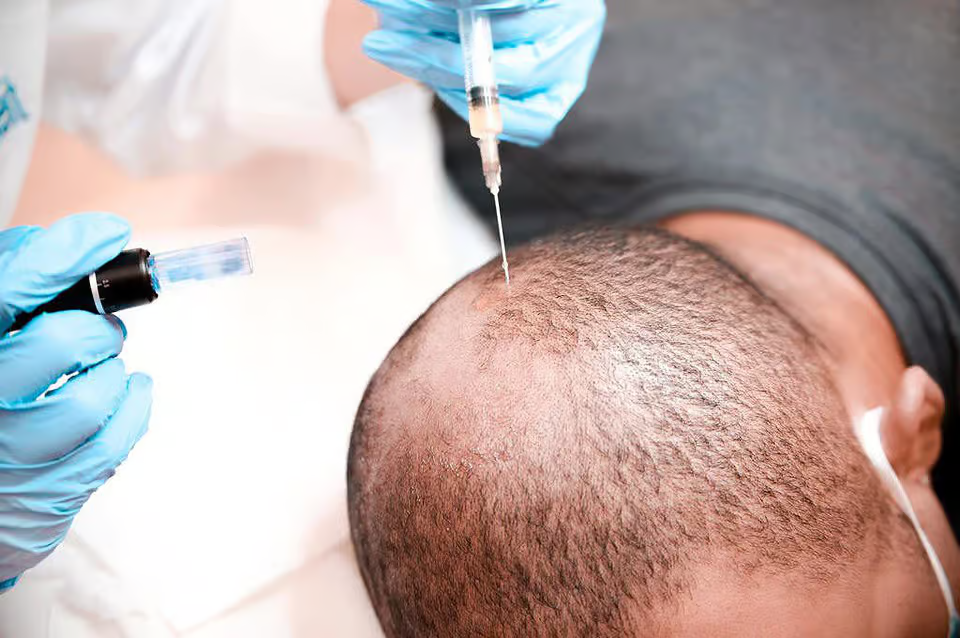Follicular Unit Extraction (FUE) is a popular hair restoration technique that has gained widespread attention for its minimally invasive approach and effective results. As with any medical procedure, achieving the best outcomes often involves not just the surgery itself but also a comprehensive post-operative care routine. Among the various treatments available to enhance and sustain the results of an FUE Hair Transplants In Dubai topical medications play a crucial role. While many topical treatments come with a price tag, understanding the available options and strategies for using these medications effectively without additional costs can significantly impact the overall success of the hair restoration process.
Understanding FUE Hair Transplant
FUE involves the extraction of individual hair follicles from a donor area, typically the back of the head, and implanting them into the thinning or balding areas. Unlike the traditional Follicular Unit Transplantation (FUT) method, which involves removing a strip of scalp tissue, FUE is less invasive and leaves minimal scarring. The success of an FUE procedure relies heavily on both the skill of the surgeon and the post-operative care provided to the patient.

The Role of Topical Medications
Topical medications are applied directly to the scalp and are used to support the growth of transplanted hair, maintain hair health, and potentially stimulate new hair growth in areas where follicles have been transplanted. Some of these medications, while effective, can be expensive. However, understanding which medications can be accessed without additional costs can be beneficial for those seeking to optimize their results without breaking the bank.
1. Minoxidil
Minoxidil, commonly known by its brand name Rogaine, is one of the most widely used topical treatments for hair loss. It is available in both over-the-counter and prescription forms and is often recommended to support hair regrowth. Minoxidil works by increasing blood flow to the hair follicles, which can help revitalize shrunken hair follicles and promote hair regrowth.
Cost-Free Approach: Generic versions of minoxidil are available and can often be obtained at no cost through certain patient assistance programs or discount offers. Additionally, some individuals may qualify for free samples or trial sizes from their healthcare provider or local pharmacies.
2. Finasteride
Finasteride, marketed under names like Propecia, is an oral medication used to treat male pattern baldness. While it is primarily a systemic medication, topical formulations are available and may be recommended in specific cases. Finasteride works by inhibiting the conversion of testosterone to dihydrotestosterone (DHT), a hormone linked to hair loss.
Cost-Free Approach: Access to finasteride without cost is less common, but some pharmaceutical companies offer patient assistance programs for eligible individuals. Additionally, generic versions of finasteride might be available through certain health insurance plans or discount programs.
3. Natural Alternatives
Natural topical treatments can also support hair growth and overall scalp health. While these alternatives may not always be as well-studied or effective as pharmaceutical options, they can still provide benefits and often come at no cost. Some popular natural remedies include:
Aloe Vera: Known for its soothing properties, aloe vera can help maintain a healthy scalp and potentially improve hair growth. It can be applied directly from the plant.
Coconut Oil: Rich in essential fatty acids and vitamins, coconut oil can help nourish the scalp and reduce dryness, which can support healthier hair growth.
Peppermint Oil: Peppermint oil has been suggested to increase blood circulation in the scalp, which may help stimulate hair follicles. Diluting a few drops in a carrier oil can be a cost-effective treatment.
Cost-Free Approach: These natural remedies are often accessible at home or can be easily purchased in small quantities without significant expense.
Best Practices for Using Topical Medications
Consistency: Regular application of topical medications as directed is key to seeing results. Inconsistent use can diminish the effectiveness of the treatment.
Follow Instructions: Always adhere to the specific application guidelines provided with the medication or natural remedy. Overuse or misuse can lead to irritation or other side effects.
Consult with a Specialist: Before starting any new treatment, including topical medications or natural remedies, consult with your hair restoration specialist. They can provide personalized advice based on your individual needs and the specifics of your FUE procedure.
Monitor for Side Effects: Keep an eye out for any adverse reactions or side effects. If any issues arise, discontinue use and seek advice from a healthcare professional.
Conclusion
FUE hair transplants offer a promising solution for those dealing with hair loss, and topical medications play a significant role in enhancing and maintaining the results of the procedure. While many of these treatments come with a cost, understanding the options available and exploring cost-free alternatives can help manage expenses while still supporting optimal hair growth. By staying informed and proactive in your post-operative care, you can maximize the benefits of your FUE hair transplant and achieve the best possible outcomes.
